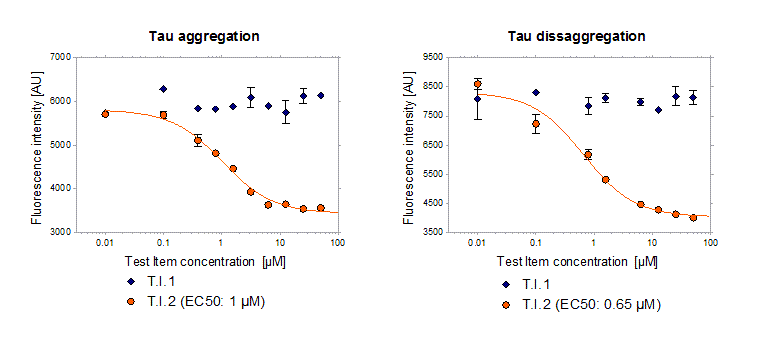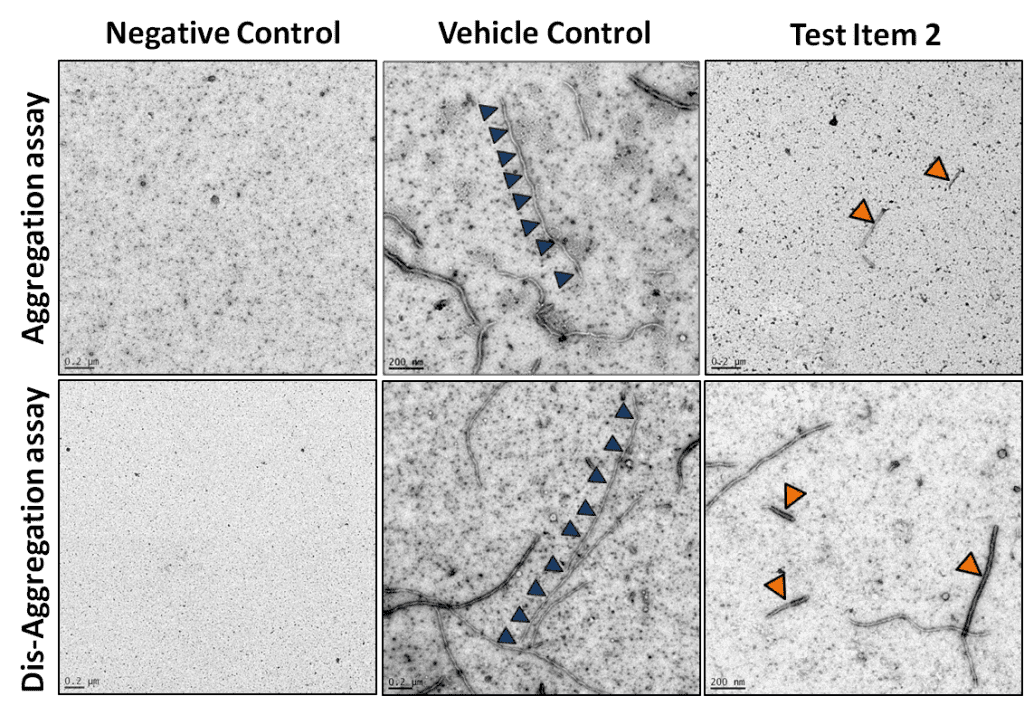Tau protein stabilizes microtubules and contributes to key structural and regulatory cellular functions as axonal transport and signaling. Neurofibrillary tangles, mainly composed of bundles of tau are implicated in the pathogenesis of neurodegenerative diseases such as tauopathies including Alzheimer‘s disease.
To identify inhibitors of tau aggregation QPS provides two approaches:
The first approach is a spectrofluorometric read out that can be performed as tau aggregation or dis-aggregation assay. The tau aggregation assay aims to identify compounds that are able to mitigate the aggregation of tau. The tau dis-aggregation assay investigates if developmental compounds are able to reverse tau aggregation.
These assays are cell-free in vitro assays using recombinant Tau441 (2N4R) P301L that is incubated in an aggregation buffer including ThioS. Fluorescence intensity is detected at 465 nm excitation and 510 nm emission.

Figure 1: Test Item 2 minimized tau aggregation in vitro and was also able to reduce pre-aggregated tau. Test item 1 had no effect on tau aggregation. EC50 was determined showing effective concentrations at 1 and 0.65 µM in the tau aggregation and tau dis-aggregation assay, respectively.
In a second approach fibrillization of tau was monitored using transmission electron microscopy (TEM). Samples were placed onto carbon – coated grids and a negative staining was performed (1% Uac). The TEM analysis was done in cooperation with the Institute of Cell Biology, Histology & Embryology at the Medical University of Graz.

Figure 2: Test Item 2 reduced the size and number of tau fibrils in the tau aggregation (upper row) and dis-aggregation assay (lower row) in contrast to the Vehicle Control. Long tau fibrils in the Vehicle Control are indicated by blue triangles and short ones after applying test Item 2 are indicated by orange triangles.
